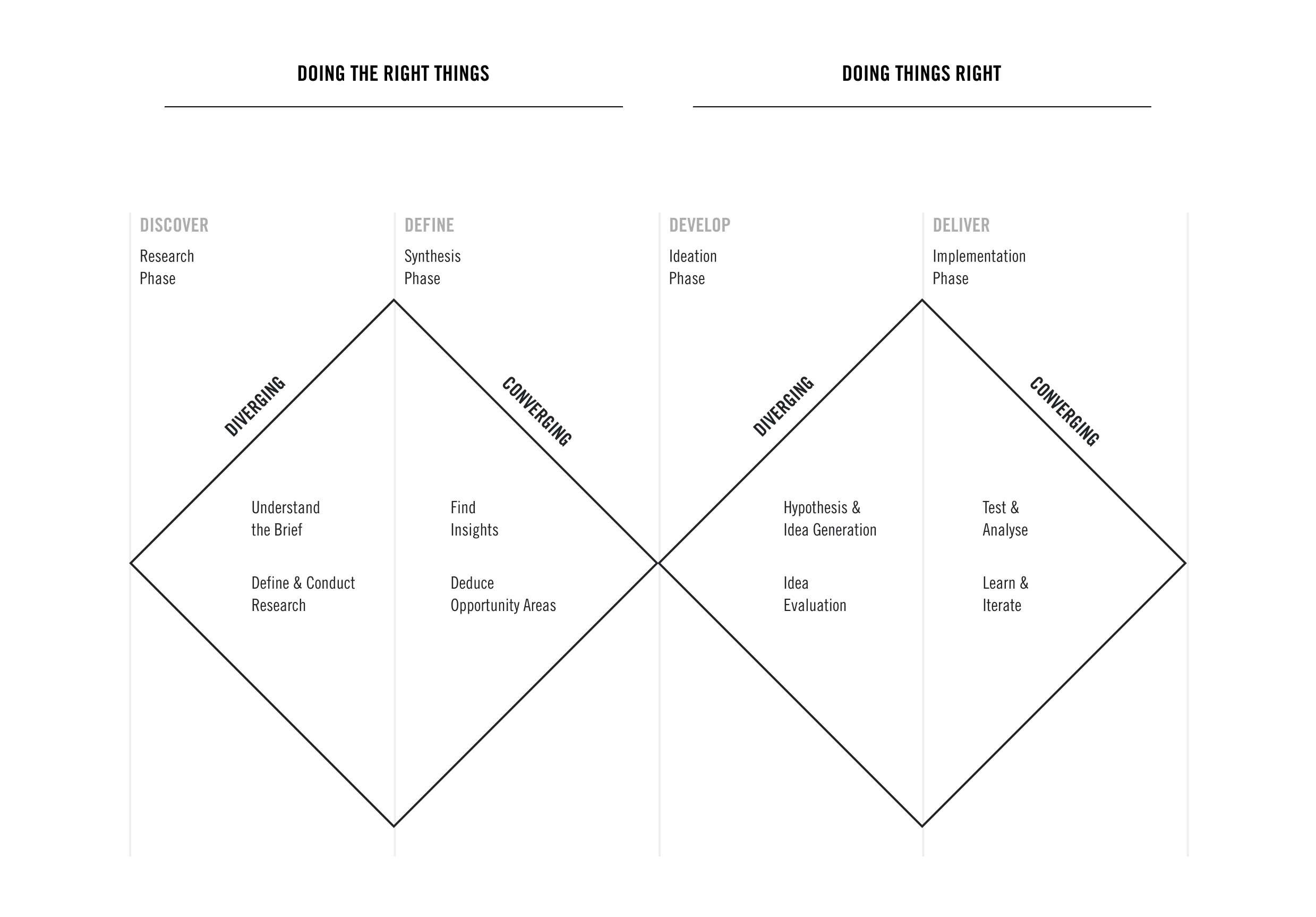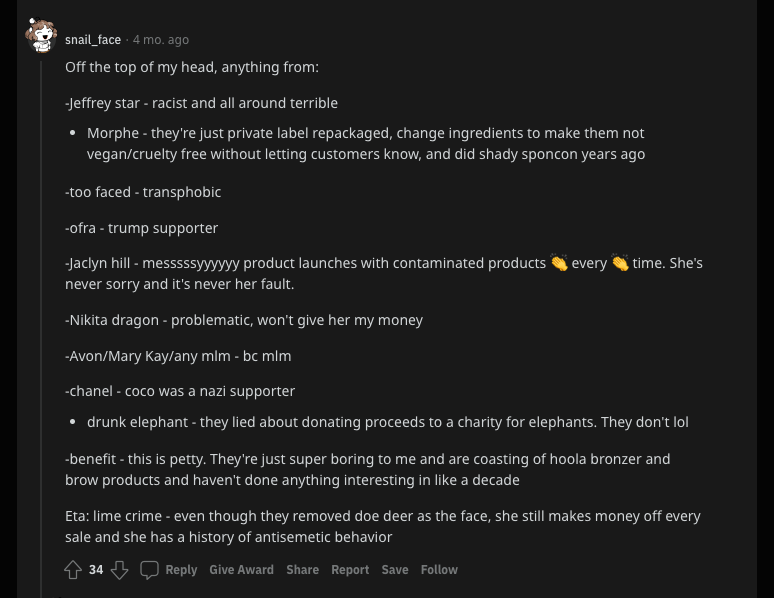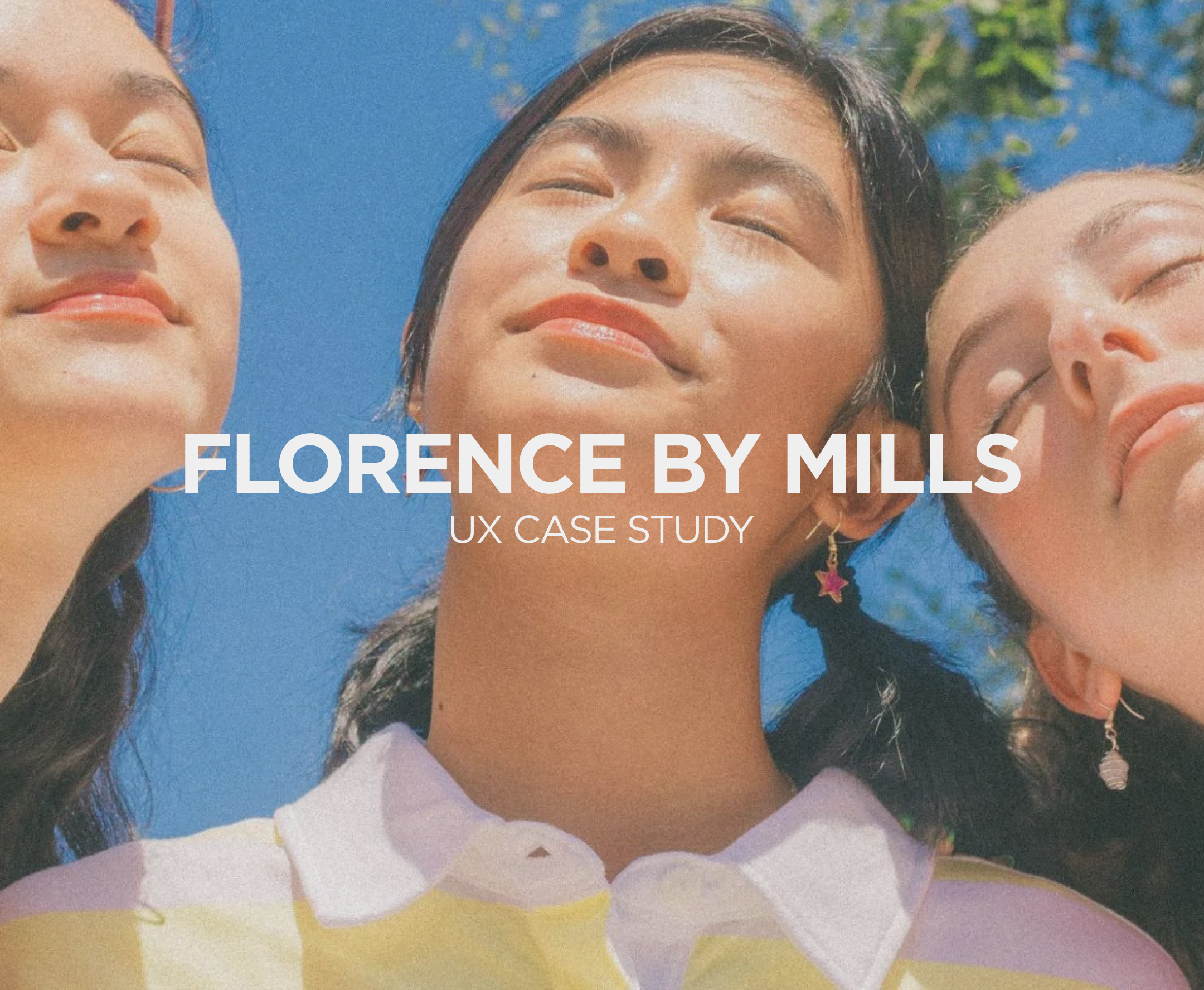Client – Beach House Group / Florence By Mills
Project Type – E-commerce store launch
My Role – Entire product design from research to conception, visualisation and testing
Duration – February 2019 to June 2019
The Project
As part of the launch of Millie Bobby Brown’s direct-to-consumer beauty brand, Florence By Mills, I was tasked with designing an e-commerce experience that was not only highly shop-able, but would also be specifically appealing to her Gen Z audience.
What is Florence By Mills?
Florence By Mills is a Gen Z focused, direct-to-consumer, clean beauty brand created by US based brand incubator Beach House Group and actress Millie Bobby Brown. Its store is built on the Shopify e-commerce platform.
What is GenZ?
Generation Z (or more commonly Gen Z for short), colloquially known as zoomers, is the demographic cohort succeeding Millennials and preceding Generation Alpha. Researchers and popular media use the mid-to-late 1990s as starting birth years and the early 2010s as ending birth years. Most members of Generation Z are children of Generation X. Source: Wikipedia – Generation Z.
What does direct-to-consumer mean?
Direct-to-consumer (DTC) is a retail model where brands sell directly to new customers. It skips the wholesale middlemen and eliminates the need to join forces with big retail brands and brick-and-mortar stores. Source: Shopify (10 March, 2022) – What is Direct-to-Consumer? Everything You Need to Know.
What do we mean by engagement?
The Interactive Advertising Bureau defines engagement as “a spectrum of consumer advertising activities and experiences—cognitive, emotional, and physical—that will have a positive impact on a brand”. Source: The Online Advertising Guide – Engagement Definition
PROCESS
For this project I followed the double diamond design thinking framework. The benefit of using this process is that it allows me to keep both research and idea generation broad before focusing in on respective opportunities and possible solutions. It opens me up to avenues of exploration that I may not have considered otherwise.

RESEARCH
To be able to begin to think about how Florence By Mills could craft an engaging experience for its target Gen Z audience, I first needed to gather some perspective on Gen Z attitudes towards beauty in general. To do this I used a mixture of first hand research (interviews) and second hand research (online forums and social media). We were lucky because, at that time, myself and other members of the Florence By Mills team had children who sat squarely within the target audience. I decided to recruit them and a number of their close friends to take part in my research.
Interviews
I began by interviewing the participants with the goal of trying to understand which beauty brands they regularly shopped and why. I purposefully tried to keep interview questions open, without leading the participants. The idea is that this will lead to more detailed answers and in-turn deeper insight. In cases where short answers were given I tried to push the conversation asking why?
Interview questions included:
- Which beauty brands do you regularly buy from?
- What is it that draws you to these brands in particular?
- Do you shop online for beauty products?
- Which online stores do you regularly shop?
- Which are your favourite online beauty stores to shop?
- What makes these experiences enjoyable?
Desk Research
To obtain a broader idea of Gen Z attitudes towards beauty I spent some time reading through beauty focused groups on Reddit, Facebook and Twitter. There is a very engaged audience, on Reddit particularly, who are not afraid to share their thoughts, both positive and negative, on beauty brands. Here are just some of the comments from what I assume are younger shoppers, about beauty brands they do or don’t support.


Defining the Problem
Research Findings
Gen Z value authenticity, inclusivity, sustainability, and individuality in beauty brands. Some specific characteristics and values that Gen Z look for when choosing beauty products are:
- Authenticity: Gen Z consumers value transparency and honesty from brands. They want to know what’s in the products they are using and where they come from.
- Inclusivity: Gen Z consumers demand that beauty brands cater to people of all skin tones, ethnicities, genders, and abilities. They look for products that are inclusive and representative of diverse communities.
- Sustainability: Gen Z consumers are concerned about the environment and want to support brands that prioritize sustainability. They prefer products that are made from natural and eco-friendly ingredients and are packaged in recyclable or biodegradable materials.
- Individuality: Gen Z consumers reject the “one-size-fits-all” approach to beauty and want to express their individuality through their makeup and skincare routines. They look for brands that offer a wide range of products and shades to choose from.
- Digital engagement: Gen Z consumers are highly engaged with social media and expect brands to have a strong digital presence. They want to be able to connect with brands online and get personalised recommendations and tutorials.
Overall, Gen Z consumers value brands that align with their values and prioritise authenticity, inclusivity, sustainability, individuality, and digital engagement.
Problem to be Solved
How might I design specific content, features, and functionality for the Florence By Mills online store that effectively communicates the brand’s authenticity and values, while also providing an engaging and guiding shopping experience for a Gen Z audience?
To be continued…
